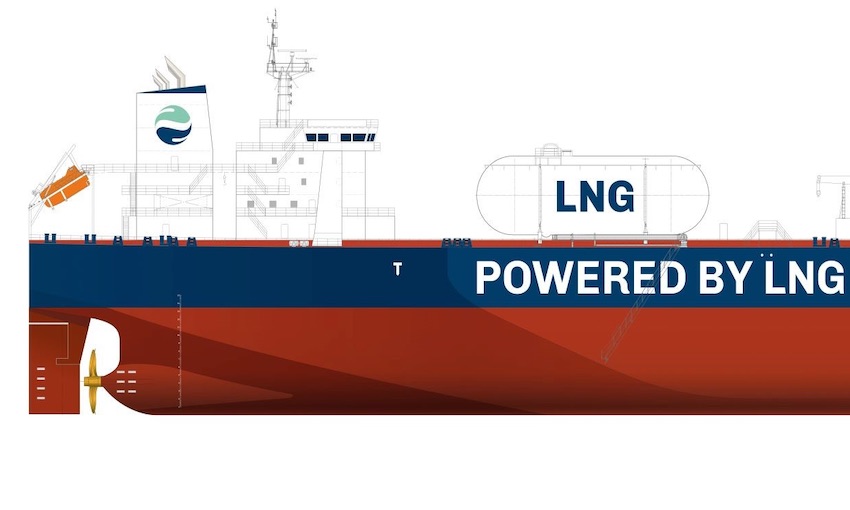TOTAL Shipping and Logistics says it is pursuing a strategy to cut greenhouse gases emissions in maritime transportation, by chartering four Aframax-type vessels equipped with liquified natural gas propulsion.
These vessels, each with a capacity of 110,000 tonnes of crude oil or refined products, will be delivered in 2023 and will join the time-chartered fleet of Total.
The first two vessels will be chartered from shipowner Hafnia, and the remaining two from Viken Shipping.
Total is the second-largest private global LNG player, with an overall portfolio of around 50 Mt/y by 2025 and a worldwide market share of 10%.
The vessels have been designed with the most efficient LNG propulsion technologies to reduce emissions, allowing a significant decrease in greenhouse gas emissions, of more than 5,000 tonnes per year and per ship compared to conventional vessels.
“This chartering contract is in line with our climate ambition and will contribute to our net zero carbon neutrality target by 2050 or before,” said Luc Gillett, senior vice president shipping at Total.
“This contract follows a similar one, signed earlier this year, for two LNG-powered very large crude carriers, to be delivered in 2022.
“LNG as a marine fuel remains the best and immediately available solution to reduce the carbon footprint of our shipping activities. With these four new vessels, we reaffirm our commitment to expand the use of cleaner marine fuels, for a more sustainable shipping”.
The supply of LNG for these four LNG-powered vessels will be provided by Total Marine Fuels Global Solutions, Total’s dedicated business unit in charge of worldwide bunkering activities.
With over 34 Mt of LNG managed in 2019, Total believes it has “solid and diversified positions across the LNG value chain”.
Through its stakes in liquefaction plants located in Qatar, Nigeria, Russia, Norway, Oman, Egypt, the United Arab Emirates, the United States, Australia or Angola, the group sells LNG in all markets.
Compared with ships powered by fuel oil, the use of LNG results in a reduction of:
• 99% of sulphur oxide emissions;
• 99% of fine particles emissions;
• Up to 85% of nitrogen oxide emissions;
• About 20% of greenhouse gas emissions.

